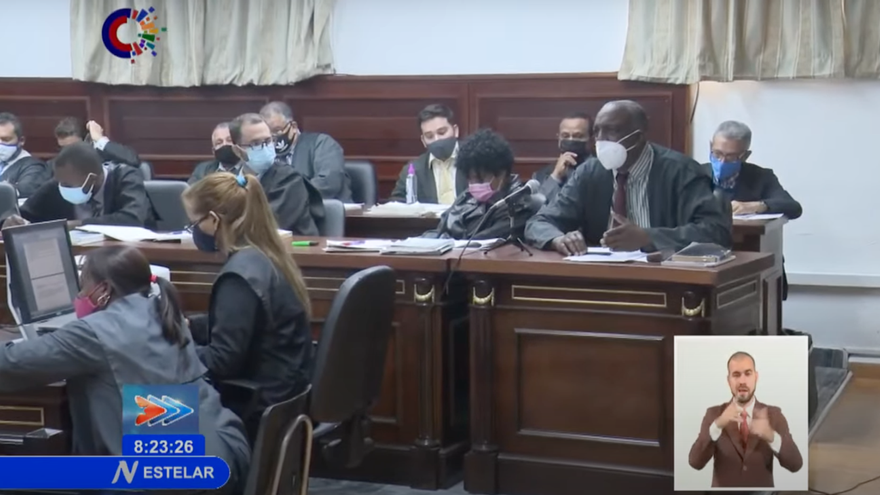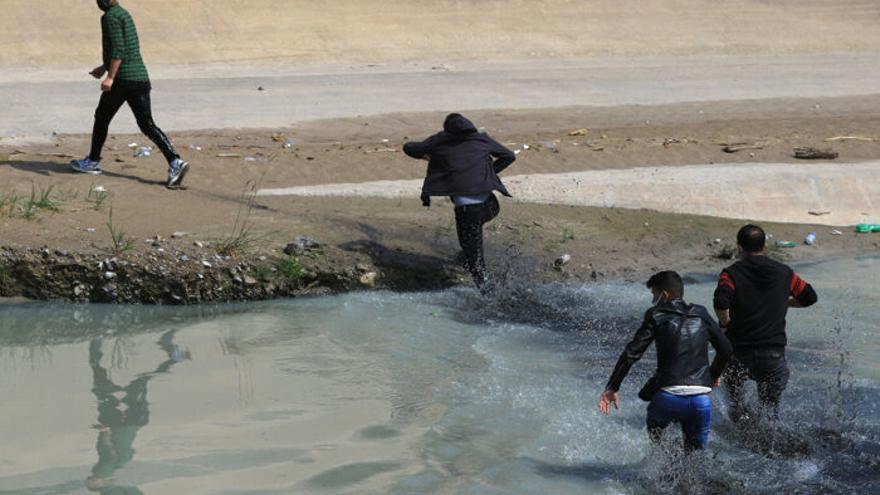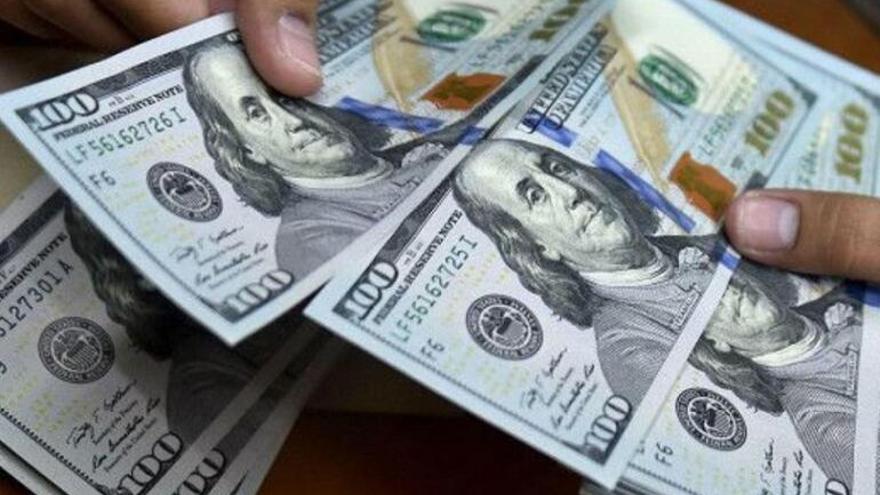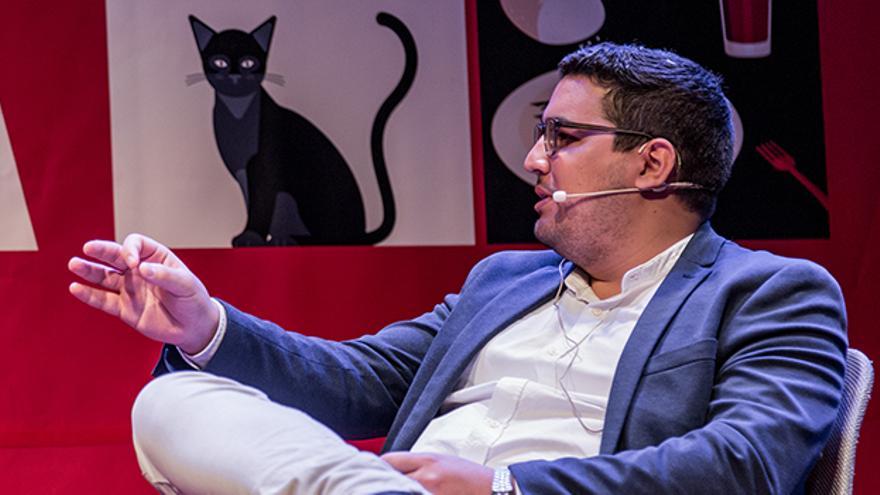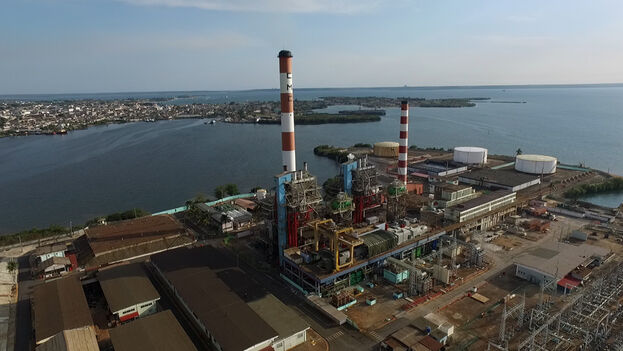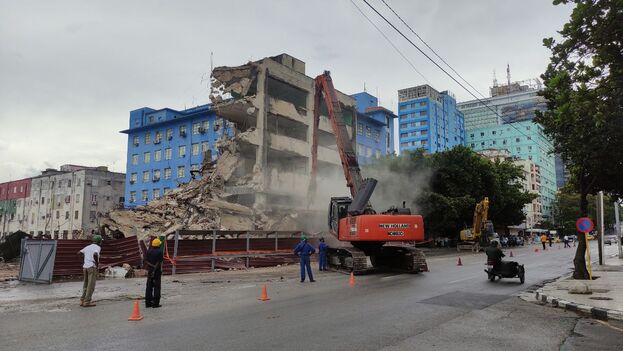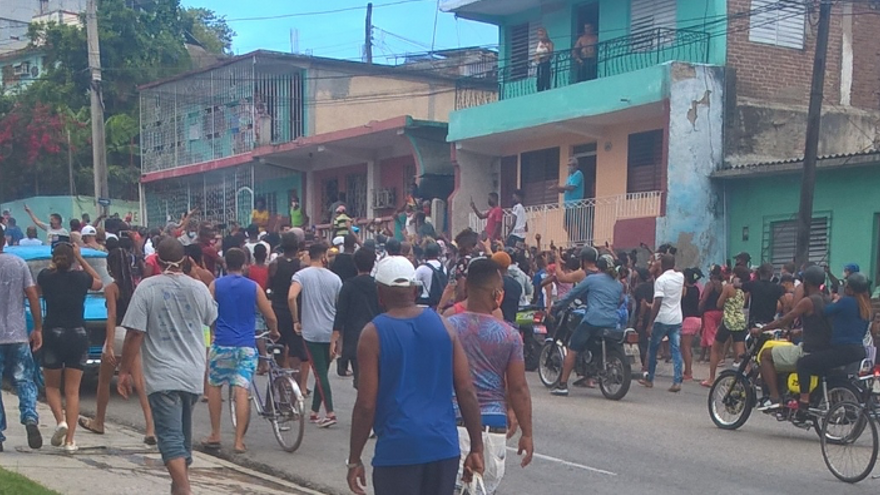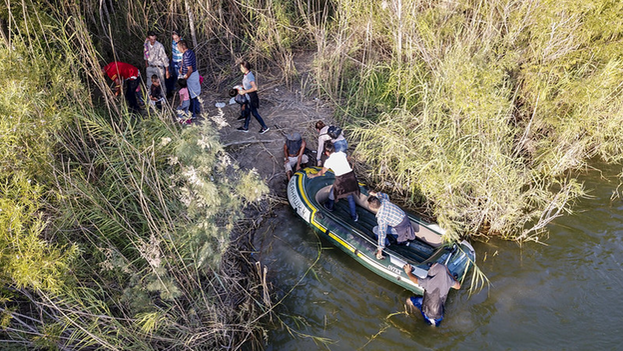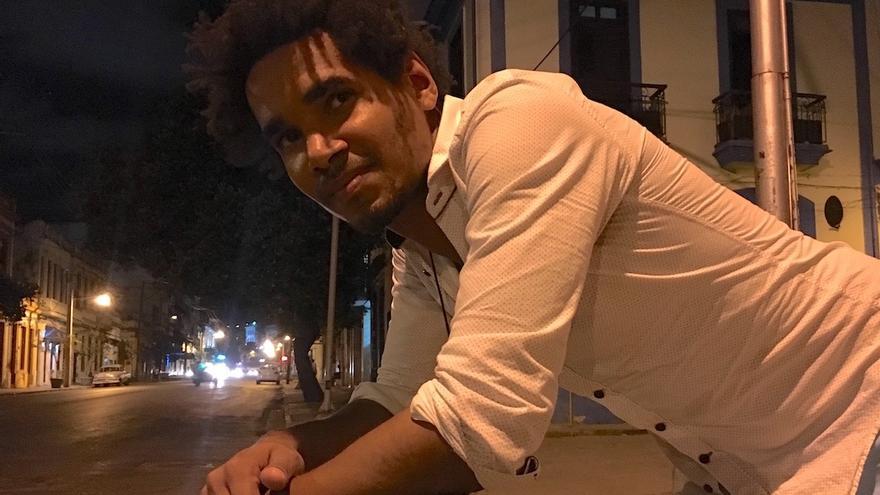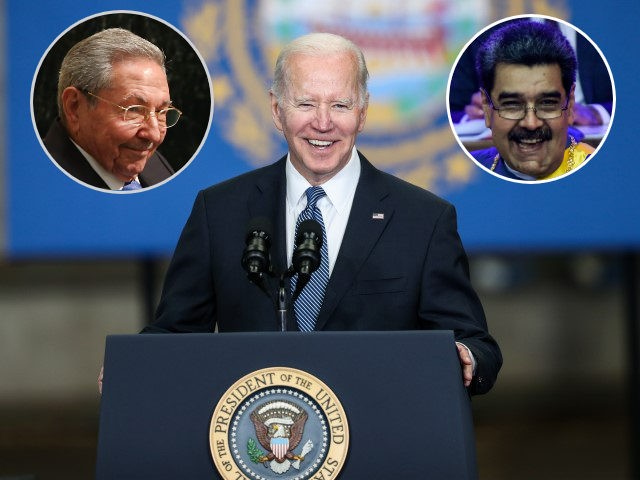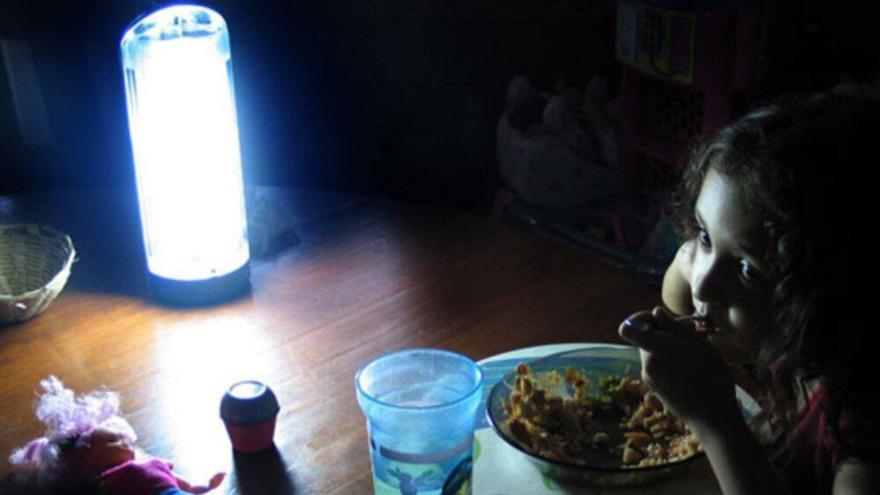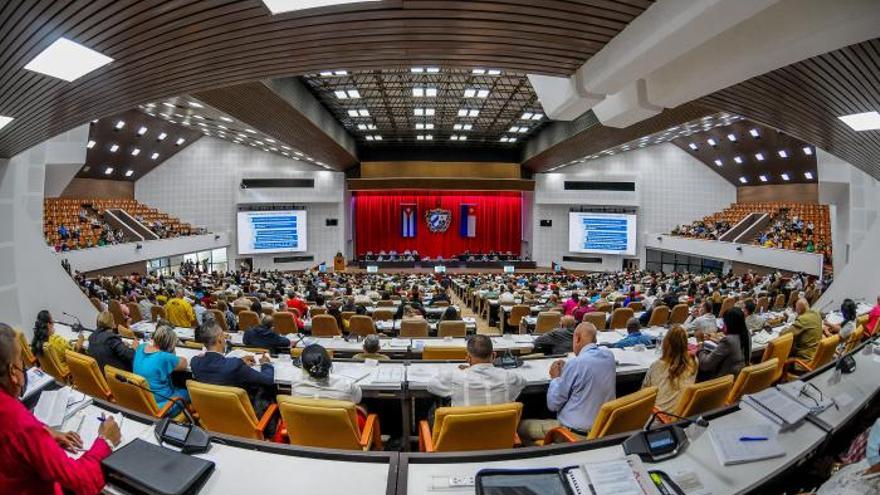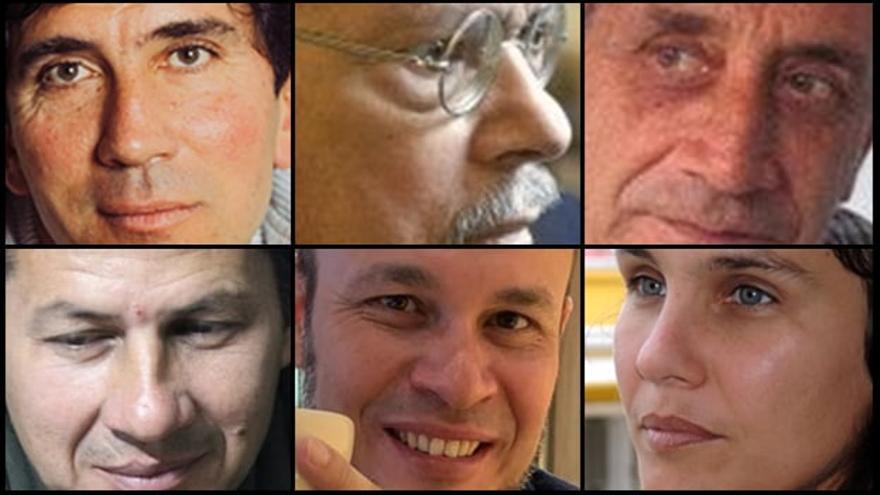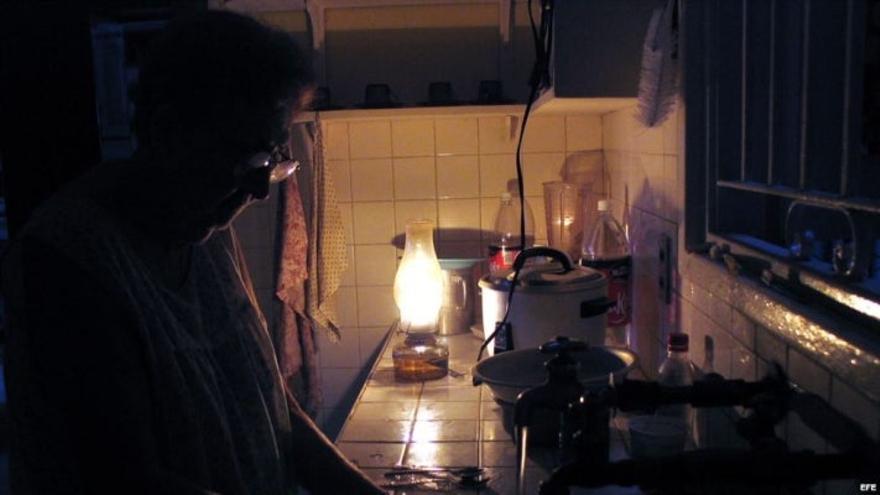
![]() 14ymedio, Alejandro Mena Ortiz, 2 May 2022 — The conditions of the prison were not bad, as I was saying, and in addition you could also play Parcheesi, dominoes, chess, soccer or basketball. We turned into a huge, multinational family.
14ymedio, Alejandro Mena Ortiz, 2 May 2022 — The conditions of the prison were not bad, as I was saying, and in addition you could also play Parcheesi, dominoes, chess, soccer or basketball. We turned into a huge, multinational family.
One of the Cubans who impressed me the most was a guy from Villa Clara who sold everything to be able to leave. He worked with the province’s Fund for Cultural Assets, but he was self-employed. He did restoration works in theaters, in houses of culture, and they paid him lots of dollars. He told me that the level of corruption in the Cultural Center, at least in the municipality of Santa Clara, is incalculable. But then things got bad and Covid was the last straw.
This man was never interested in politics or the situation in the country, because he says that there were months in which he earned thousands of dollars. He built a mansion for himself, houses for the whole family, established pig farms… He had a lot of money and sold it all, although he didn’t tell me a figure.
I also talked to a guy, Richard, who was a cook in Havana. He was interested in pastry and shops and bakeries, and he always wanted to set up his own business, despite being quite young, 25 years old. An aunt of his who lives in Houston told him: “Mi’jito, (Sonny) you’re never going to become anyone there. Come, I’m going to pay for everything so you can set up your own sweets and bread business.” He left a lot of family in Cuba and that hurt him. He had been in prison for 17 days (he was released from prison on March 14th). I only spent 3 days.
There was a Venezuelan who told me: “Maduro is a son of a bitch just like Fidel Castro and his entire generation.” This was one of those who went out to protest in Venezuela in 2017 against the regime there, but they harassed him so much that he ended up leaving and going to Peru. He spent four years there, and it did not go badly, but with the pandemic he lost his job and came to the United States, jumping borders from Peru.
This young man told me that the hardest part of the trip was the Darién jungle, very dangerous. In all the groups that go into the jungle, there is always a person who dies, he says, and in his group, it was a 14-year-old boy. The boy, who could have been from from India, according to what he told me, slipped down a rock, hit his head and was left there. The parents paid some natives 5,000 dollars to carry him to Panama, because the coyote didn’t care. They left them in Panama, the little dead boy and his parents. After that, he didn’t hear from them anymore. He says that if you look to the sides of the Darién trails, you’ll see decomposing bodies, because they cannot be carried. continue reading
You have to carry chlorine tablets to drink the river water, but he didn’t have any tablets and he drank it like that, untreated. Of course, then he had diarrhea and fatigue
Another thing he told me is that the water doesn’t even last a day. You have to carry chlorine tablets to drink the river water, but he didn’t have the tablets and he drank it like that, untreated. Of course, then he had diarrhea and fatigue. The coyote tried to rush them and threatened to leave them behind. In another instance, they made progress, paying about 275 dollars each to cross a river. Paying was better, he said, because the danger of dying is much greater.
After all that, he went through Panama, Costa Rica, Nicaragua… and when he got to Mexico, he said that he crossed it in three days. I told him that he had been extremely lucky, but he disagreed. They had put him in a truck with a false bottom –they had a wooden floor on top, where they placed crates with tomatoes, vegetables, and things like that – and they laid below the false floor, unable to move. Sometimes they stayed like that for 21 hours while they traveled, with stops of up to five hours at the edge of the road, waiting for a checkpoint to leave. They urinated in a bottle that they threw out as best they could, but sometimes it spilled on them.
To make things worse, it either was so hot that they suffocated or so cold that they froze. On one occasion, he says that he thought he was about to die because he was very sleepy and felt nothing.
There were also three Guatemalans there, a strange thing, because they are deported quickly, but they had arrived in December. Their group was caught and they were pointed out as witnesses against the coyote. After 90 days in a prison, they were transferred there, and two had an open expulsion order and the other was given the classification of parole, because it seems that he was the only one who spoke out.
One night, they came to do a PCR test on me and six others, and they told us to be on the lookout, in case they came looking for us. And so it happened: at 4:00 in the morning, they woke us up, they gave us breakfast in a cell and they returned the money we had when we arrived, in my case, 120 dollars. They also took away our prison uniforms and we put on the clothes we arrived in. You could imagine the stink of those clothes.
They took us by bus to ICE (Immigration and Customs Enforcement), and once there, an officer had me sign the papers and told me to stay out of trouble. After that, another bus, and then they took us to a church that welcomed us in a courtyard, sitting on chairs, where they called us one by one.
On that portion of the trip, I met one Venezuelan and two Cuban women. The Venezuelan one left in December and was arrested in Guatemala. The coyotes paid to release her and she was arrested again in Mexico: 30 days in a Tapachula prison. When she was let out, she again looked for someone to help her get across. In total, her family spent thousands and thousands of dollars for her to reach the US. She told me that she was very depressed, that if she had known how things were, she would not have done this. She also told me that she would like to return to her country, but that as long as Maduro was still there, she would not return.
The man asked me what was happening in Cuba, he mentioned Fidel Castro, and I told him that it was his fault that we were not free
On our arrival at the church, where they gave us food and clothes, you can’t leave if you don’t have a plane ticket, so my family tried to buy me one from Laredo to Miami, but they were over $800. In normal times, I was told, that flight is about a hundred something dollars, so we found a solution through Houston. They took me to a bus station, where I bought a ticket to San Antonio for 59 dollars. Two older men who help immigrants were waiting for me there.
I was very moved by this, because they gave me food, toiletries, a mask, and even a small blanket to cover myself. I even told them to save it for someone who was more in need than I was, but in the end, I took it, because the trip was long and my flight didn’t leave until 7:30 in the morning.
The man asked me what was happening in Cuba, he mentioned Fidel Castro, and I told him that it was his fault that we were not free. He was very sympathetic. Also, I really liked San Antonio, with its huge buildings. It seemed incredible to me, to be seeing so much beauty before my eyes.
Arriving in Houston, a cousin of mine who lives there found out and said she wanted to come pick me up. She took me to her house, where I ate, showered, and they washed the clothes I had been wearing, and at 5 in the morning they took me to the airport.
I was a little embarrassed, because the treatment was not the same as for the rest of the passengers: they separated me from the line, they searched me more vehemently, they took photos of me… But I was also amazed at the sheer size of that place: a kilometer to my boarding gate, full of shops, people, life.
I entered the Miami airport through gate 21, and my cousin was waiting for me. I grew up with him but life separated us when he left Cuba and went to Spain, when we were 17 years old; then he ended up in the US. Well, here we are, together again.
At the moment of the embrace, of the uncontrollable tears, I began to remember how long I had spent to get to this country and I couldn’t believe that I had arrived safely, that I had arrived alive. After so much waiting I was with my buddy in this land of freedom.
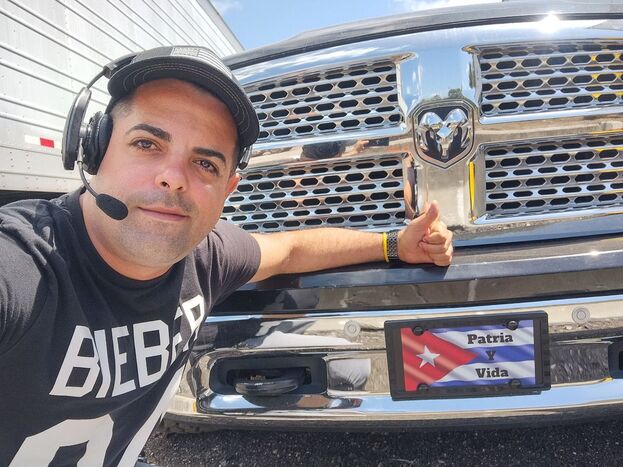
I turned 34 years old on my last birthday, as you already know, in the dungeons of an ice-cooler while I was detained. My closest family – my children, my wife, my parents, my grandmother – are in Cuba.
I was a cook for many years in a private restaurant in Havana, but for a long time I have been working as a reporter for 14ymedio. I am so proud of this that I would need a whole chapter to talk about it.
My trip lasted 26 days from the time I left Havana until I arrived on US soil. It cost a total of 10,075 dollars, including plane tickets, payment to coyotes, cash to eat, etc. This money was put up by a relative, to whom in due course, and when I have it, I will begin to return everything “invested” in my trip.
My cousin is a truck driver here in the US, so in a few weeks by his side I have already crossed 20 states. I have seen many beautiful things. Also, other very ugly ones that I didn’t like, I suppose that happens in all countries.
Now I am discovering what it is like, seeing the lies that the official media in Cuba told us. This is a country with many objectionable things, yes, yes, yes, but it is a country where one can have freedom. I still haven’t adjusted to that. I still have the ghost of fear, of anxiety, when I see, for example, a police patrol or a police officer approaching, because it reminds me of the oppressors who do not allow us to live our lives.
Up to this point this is my story, and so, just: patria y vida. Patria y Vida [Homeland and Life].
Translated by Norma Whiting
With this chapter ends the series on ‘Cuba, the Island in March.’ A pdf version has been published in the original Spanish and an English pdf will also be prepared and linked to here, along with links to the other articles on this site.
____________
COLLABORATE WITH OUR WORK: The 14ymedio team is committed to practicing serious journalism that reflects Cuba’s reality in all its depth. Thank you for joining us on this long journey. We invite you to continue supporting us by becoming a member of 14ymedio now. Together we can continue transforming journalism in Cuba.

